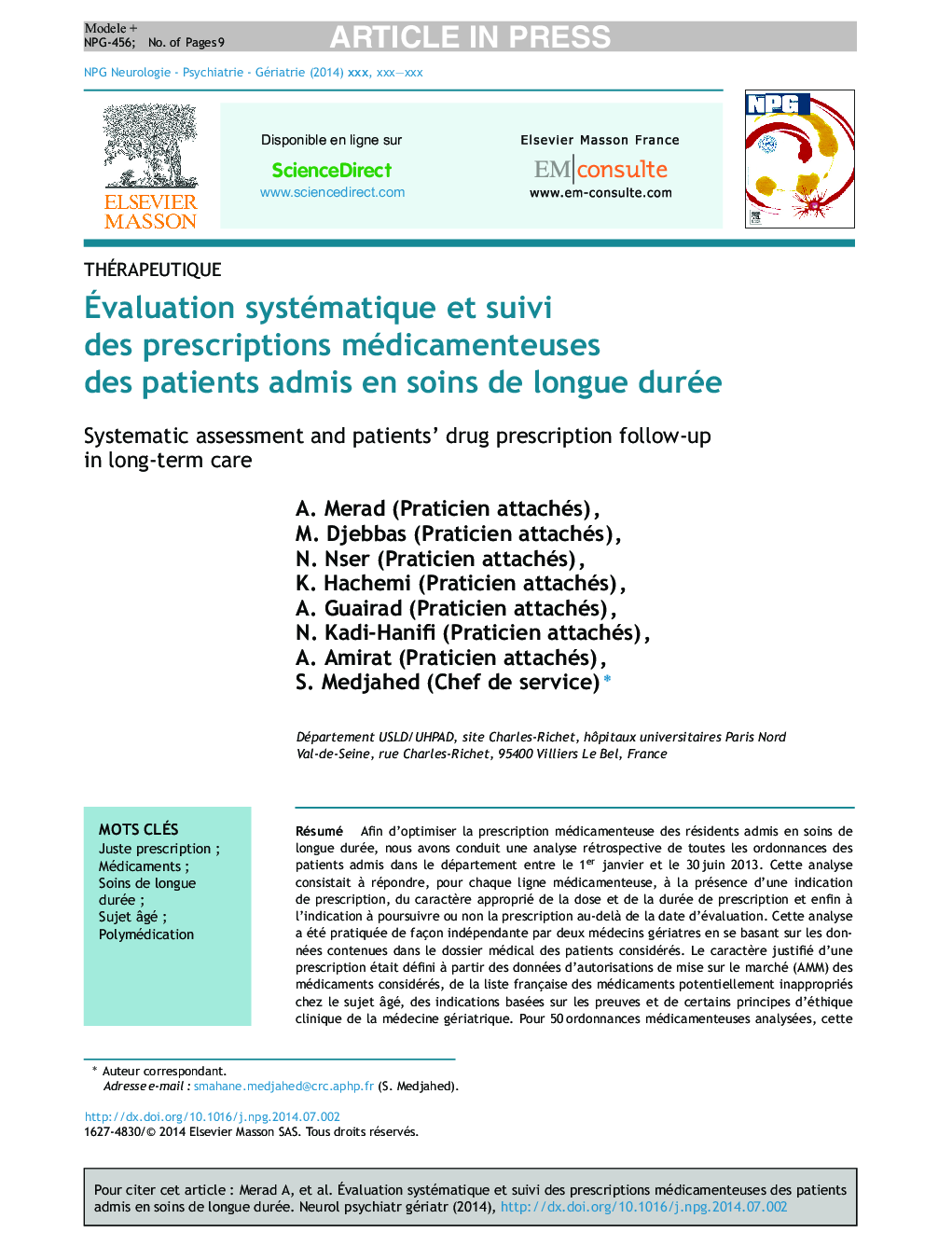| Article ID | Journal | Published Year | Pages | File Type |
|---|---|---|---|---|
| 3325995 | NPG Neurologie - Psychiatrie - Gériatrie | 2015 | 9 Pages |
Abstract
To optimize residents' drug prescription in long term care, we conducted a retrospective analysis of all patients' prescriptions admitted to the department between January 1 and June 30 2013. This analysis was to respond, for each drug, to the presence of an indication of prescription, the appropriateness of the dose and the duration of prescription and to the indication to continue the prescription beyond the date of evaluation. This analysis was performed independently by two geriatricians, based on the data contained in the medical records of the patients considered. The justified character of a prescription was defined from the drug authorizations market data (AMM), the French list of drugs potentially inappropriate in the elderly, indications based on evidence and certain clinical ethic principles of geriatric medicine. For the 50 drug orders analysed, this approach allowed an average reduction of three lines of drug prescription per resident. Non-appropriate requirements (indication) rate was 41% of prescriptions; inappropriate times were 16% of prescriptions and non-adapted doses was 23%. Forty three percent of drug treatments had not been continued. This systematic evaluation of drug orders on admission is now sustainable in long-term care. This leads to correct drug prescriptions and fights against poly medication and the avoidable supply in the elderly.
Related Topics
Health Sciences
Medicine and Dentistry
Geriatrics and Gerontology
Authors
A. (Praticien attachés), M. (Praticien attachés), N. (Praticien attachés), K. (Praticien attachés), A. (Praticien attachés), N. (Praticien attachés), A. (Praticien attachés), S. (Chef de service),
